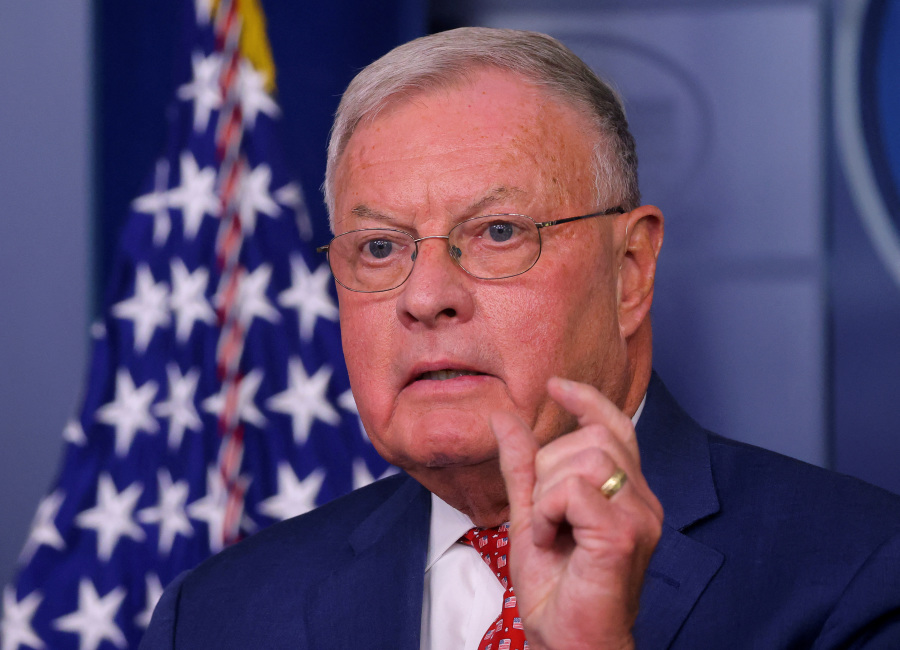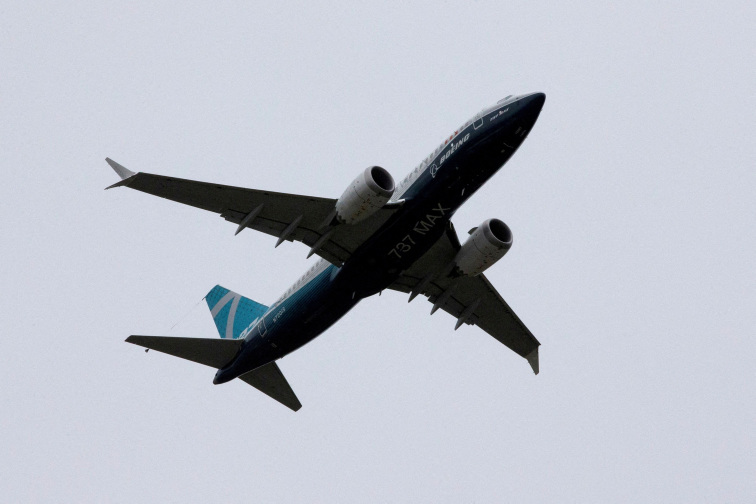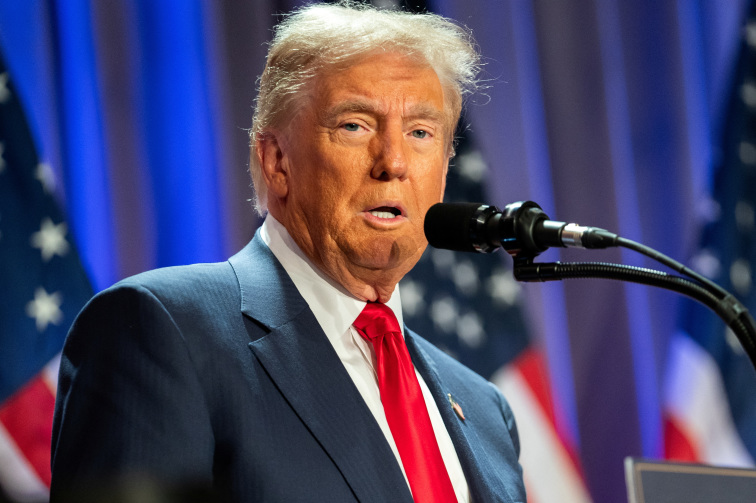(Reuters) - President-elect Donald Trump is considering Keith Kellogg, a retired lieutenant general who has presented him with a plan to end the war in Ukraine, to serve as a special envoy for the conflict, according to three sources with knowledge of the matter.
Kellogg, who was the chief of staff for the White House National Security Council during Trump's 2017-2021 term and national security adviser to then-Vice President Mike Pence, would likely play a central role in attempting to resolve the conflict if he is selected.
Kellogg's plan for ending the war, which began when Russia invaded Ukrainian sovereign territory, involves freezing the battle lines at their prevailing locations and forcing both Kyiv and Moscow to the negotiating table, Reuters reported in June.
There is currently no special envoy for the conflict, but Trump is likely to create the position, said all the sources, who requested anonymity to discuss private deliberations.
Karoline Leavitt, a spokesperson for Trump's transition effort, declined to comment on the possible selection of Kellogg, beyond saying that personnel decisions "will continue to be announced by (Trump) when they are made."
Kellogg, 80, did not respond to a request for comment.
He faces competition for the role. Richard Grenell, Trump's former acting director of national intelligence, is also in the running, Reuters reported on Friday. One of the sources with knowledge of Kellogg's potential appointment said Grenell still appeared to be the frontrunner.
During a Bloomberg roundtable in July, Grenell advocated for the creation of "autonomous zones" as a means of settling the conflict.
Kellogg drafted his plan for Ukraine alongside Fred Fleitz, who also served as a chief of staff to the National Security Council under Trump.
Under their proposed strategy, the U.S. would tell Ukraine that it would only get more American weapons if it enters peace talks. The U.S. would at the same time warn Moscow that any refusal to negotiate would result in increased U.S. support for Ukraine. NATO membership for Ukraine would be taken off the table for the immediate future.
That plan would be unlikely to please Kyiv, given that it would in practice give Russia uncontested control of parts of eastern Ukraine, at least for a significant period of time.
Additionally, some Republicans, particularly in the House of Representatives, would likely be reticent to agree to more aid to Ukraine.
(Reporting by Svea Herbst-Bayliss, Steve Holland, Gram Slattery and Alexandra Ulmer; Editing by Ross Colvin, Colleen Jenkins and Jonathan Oatis)











News magazine bootstrap themes!
I like this themes, fast loading and look profesional
Thank you Carlos!
You're welcome!
Please support me with give positive rating!
Yes Sure!